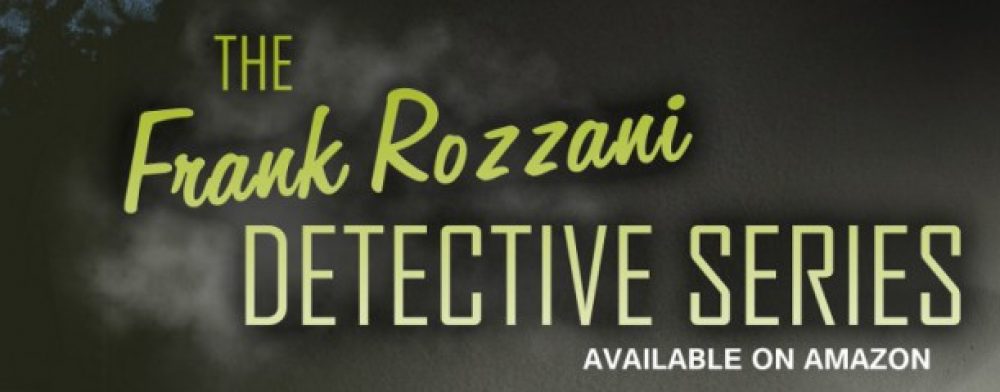Many of us who are independent authors with blogs offer advice, talk about our books, interact with other authors and review their works. We do this without seeking monetary rewards and achieve a modicum of recognition.
Why do we do this? What motivates many of us with full-time day jobs to spend our free time working passionately at something with a minimal financial return?
 What do readers want?
What do readers want?
First, let’s talk about what we do want to achieve in writing. I know that one of my first considerations is attracting readers. In order to attract readers, a writer must determine what readers desire in the books they read.
To consider this, I first think of what I’m looking for in a book when I sit down to read it. We all have busy lives. For me, reading provides an escape. It allows my brain to change gears and go places far away from the daily grind.
To achieve this, however, a book needs to have a character that the reader can identify with. If your protagonist is a detective, you must put the reader inside the mind of this character and lead him or her through the steps that the detective goes through to solve a case. You have to avoid pitfalls like allowing your character to make significant leaps in a case that defy conventional logic. Readers are smart and they will abandon a book, and possibly an author, if the steps don’t make sense.

What are you going to write? A novel, short stories, something else?
Novels have three distinct parts, a beginning, a middle and an end. So do short stories, for the most part. It takes a different set of skills, however, to write a full-length novel and/or short stories. It is true that both have a beginning, middle and end. Novels, however, are much longer and have room for a lot more complexity and character development. It is also harder to keep a reader engaged for a long period of time. One of the hardest things to do when you’re writing a novel is to keep up the interest through the middle, or as many authors refer to it, ‘the muddle’. We usually set out to write a novel with the cool ending in mind and maybe the beginning as well. Getting from A to B, however, is the part that takes great discipline and dedication so that you don’t lose your readers. Some of the great authors struggle with this. I’ve found myself reading military novels that take the reader through intricate maneuvers that, if I were to skip 20 pages, would not subtract from the story line.
Writing a short story compacts the process and elements into a much shorter format. A story might be about 1/10th of a novel’s length. You have a shorter period of time to hook your reader and get their buy-in. You may not be able to develop your characters to a very high level. You have to focus on the plot and make it solid in this shorter form of writing.

Accuracy and Research
There are many ways, in this age of the Internet, to research your writing while sitting at your desk. This is especially relevant for indie authors as we may not have the time or funds to travel to exotic locations in search of settings for our stories. Research is important. When you are looking for reviews and feedback on your writing, there are many research trolls sitting under bridges waiting to discredit you because your writing might not be 100% accurate. You can avoid these trolls by using multiple independent sources for your research.
If you write in a particular genre, you should seek out experts in the field you are writing about to help you validate your work. For my detective novels, I have a group of ex-police officers that are always willing to offer advice and feedback. For my military thriller, Blood Orange, a retired Navy friend validated the military and technical details for me. Of course, the Internet is a big help, but, as I was researching dirty bombs and radiation contamination information, I expected black SUVs to show up in my driveway every time I did research.

Writing for Money
Once you begin researching the publishing industry, you begin to discover that writing fiction and expecting to become rich through doing it is an unrealistic expectation. At this point in my writing career, I make enough each month to take my family out for a nice dinner or a day at a theme park. It’s not zero, but it’s not enough for me to retire. We all dream of waking up and checking our Amazon stats to see that we have sold tens of thousands of copies of a book overnight and have been discovered as the next big thing. It does happen to some. Ask Hugh Howie or Andy Weir about their success and they will tell you they were both struck by sales lightning when they least expected it. Other indies, like Mark Dawson, have worked hard at their success and, combined with luck, have done very well.
I don’t have delusions of becoming an overnight millionaire from my writing. I’m about 12-13 years away from retirement, however, and I would like to build my writing up to a business that sustains me well in my retirement in conjunction with my pension and social security. To do this, I believe the key is branching out in other areas of writing. I’m looking at the possibility of providing editing and formatting services and ghost writing as a way to be involved in the craft I love and bring in some income doing so. I don’t have the time to launch this supplemental activities yet, but they are on my radar.

Talking About Being an Author
I work for a ginormous consulting company with over 200,000 employees. I’m on a new project every 3-6 months working with people I’ve never met. On the whole, I’m reluctant to talk about my writing because, by some, it’s viewed as a distraction from my work. I have learned, however, to manage my time very well and make use of my travel and hotel time. Convincing others of this, especially the young, hungry coworkers, is an uphill battle.
The funny thing is, I’m usually approached by them about my writing. They will say, wow, I see that you’ve published a bunch of books. Why are you still working? Well, see the previous section of this post for the reason. There are some that have read my books and give me positive feedback. For that I am grateful. One of the conscious decisions I’ve made is to use all of my social media to promote my writing. This include LinkedIn. My company is a big proponent of using LinkedIn to push our initiatives and talk about the company. I choose not to do this and use it instead to promote my writing. I know that a lot of my coworkers have looked at my profile and posts and are likely scratching their heads. I’ve thought about this, and I really don’t car. It’s my social media and I’ll use it as I choose.
So, what about you? Let’s have a conversation about this. How do you keep the fire burning? What are your goals?

Very mindful post, dear Don! Thank you! You calmed me down concerning a possibility to become rich being an indie author. 🙂 Well…at the moment my goal is finally to bring my fist book to be published via a traditional publisher or not. I know that patience is the most important thing for true success as well as hard working. They must be keys to become a well-paid author sooner or later. Fortune helps those who dare. 🙂
Best wishes,
Maria
LikeLiked by 1 person
You can’t succeed if you don’t try. That is a given.
LikeLiked by 1 person
True! 🙂
LikeLiked by 1 person
Reblogged this on Anna Dobritt — Author.
LikeLiked by 1 person
Thanks, Anna
LikeLike
My goal since giving up work to raise a family, has been to make a career out of writing fantasy novels. Now I’m at the stage where my youngest will start her last year of junior school this September and I’m wondering about going back to work (though I hate the idea passionately!). I’ve put a lot of pressure on myself to succeed, but I’ve only published two books since Nov 2015 and I know its a slow business to break into. I just wish there were more hours in the day!
LikeLiked by 1 person
From everything I’ve read, it can be tough to make a living from just writing book. If I had the freedom from my day job, I would look to offer other writing-related services to supplement my income and garner a reputation. Things like editing, formatting, and ghost writing come to mind. Even looking for work as a PA with an established author can help you make connections.
LikeLiked by 1 person
If I could work in a word related field it would certainly ease the blow of losing my writing time. PA to an author would be perfect!
LikeLiked by 1 person
Good luck. Keep us posted on what direction you take.
LikeLiked by 1 person
Pingback: What is at the heart of your writing? — Author Don Massenzio – sisirblog
Thanks for sharing this.
LikeLike